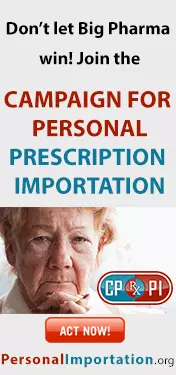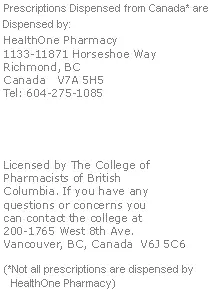
| The Top Five Most Unexpected Drug Discoveries |
| March 1st 2012 |
|
Tweet
|
|
If the claims of some doctors are true, India may soon be confirmed as the third country - after Italy and Iran - to harbor cases of incurable tuberculosis. These strains of tuberculosis are completely resistant to the arsenal of drugs currently available to treat TB. However, there may be some evidence that thioridazine - an antipsychotic drug - may be just what the doctor ordered to fight these resistant strains of tuberculosis. What does tuberculosis have to do with psychosis? Nothing, as it turns out, except that somewhere around the mid-twentieth century, doctors discovered that patients in one nursing home had fewer incidents of tuberculosis than patients in another nursing home. The nursing home that used thioridazine had fewer cases of TB.
Though scientists may not like to admit that drug discoveries can sometimes be serendipitous, these happy accidents do occur from time to time with humankind being the grateful beneficiary. Here is our list of the top five most unexpected drug discoveries of our time:
|
| 5. Latisse |
|
Perhaps you've seen Brooke Shields' commercial touting Latisse, the new wonder-drug that has made her eyelashes grow longer, darker and lusher. What misfortunate scientist who grew up dreaming of discovering the cure for cancer ended up whiling away his time for such a superficial end as this? In fact, Latisse is actually a brand name for bimatoprost ophthalmic solution, a glaucoma treatment that Allergan continues to market under the name Lumigan. Side-effects noted during Lumigan's clinical trials warn that "eyelashes may grow longer, thicker or darker". By early 2009, Lumigan's twin sister, Latisse, was approved and being marketed as a wonder drug for those with thin or not enough eyelashes.
|
| 4. Zyban |
|
Our number four accidental drug discovery begins with bupropion, an antidepressant drug sold under the names Zyban and Welbutrin. As Zyban was undergoing its clinical trials, participants began to report that they were quitting smoking without even trying! Many stop-smoking remedies involve nicotine replacement therapies or NRT's - products such as Nicorette gum and lozenges or NicoDerm patches, which actually contain nicotine and work by slowly weaning the smoker off of his addiction. Zyban, on the other hand, contains no nicotine and researchers aren't really sure how it works. But after testing Zyban specifically as a stop-smoking aid, researchers found that some participants reported that their desire to smoke had disappeared. Since Zyban works by altering chemicals in the brain, it diminishes some of the effects of nicotine withdrawal, which happen to mimic the symptoms of depression - irritability, restlessness, anxiety, difficulty concentrating and an unhappy or depressed feeling. Zyban was approved as a stop-smokingaid by the FDA in 1997.
|
| 3. Viagra |
|
When sildenafil, better known as Viagra, was first tested, researchers at Pfizer in England hoped they had found a new cure for angina. Sildenafil was supposed to work by expanding blood vessels and expand blood vessels it did. Only it also lowered blood pressure, which was not a good indication for those suffering with angina. However, expanded blood vessels in just the right places were a surprise bonus for lots of men who participated in the clinical trials for sildenafil. In March of 1998, Viagra became the first oral remedy for erectile dysfunction ever to be approved. And - for the first time ever - millions of men were willing to seek treatment for ED.
|
| 2. Warfarin |
|
Until now, all of the findings on our accidental discovery list have been surprise uses for substances already acknowledged or being tested for use as drugs. Our number two discovery will depart from that pattern a bit. During the 1920's, cattle began to mysteriously die from internal hemorrhage. The cause was attributed generally to spoiled sweet clover, but when the Great Depression hit and ranchers could ill afford to lose a single cow, one frustrated farmer, Ed Carlson, packed up his dead cow along with a milk can filled with blood that refused to clot and drove to the Wisconsin Alumni Research Foundation (WARF) looking for answers. There researcher Karl Link was able to isolate the naturally occurring chemical compound coumarin, which, when oxidized in damp hay, is the culprit anticoagulant. In 1945, Link came up with the idea to use the compound as a rodenticide, as it is still used today. Scientists continued to study and test coumarin. In 1955, it was given to President Dwight Eisenhower after a myocardial infarction and today - from cattle-killer, to rat-killer, to human life-saver - Warfarin is the most widely used anticoagulant in the world.
|
| 1.Penicillin |
|
The number one spot for accidental drug discoveries is reserved for the one that Time magazine called in 1999, "the most efficacious life-saving drug in the world." Alexander Fleming's accidental discovery of the mold, penicillin, in 1928, would lead to the development of a drug that would revolutionize healthcare by providing a cure to heretofore deadly diseases such as syphilis, gangrene and tuberculosis. Fleming's discovery came about quite by accident when he returned from vacation and found a mold growing in one of his petri dishes that seemed to have killed the staphylococcus aureus specimen he had left growing there.
Alexander Fleming's contribution to medicine ricocheted throughout the world, easing human suffering everywhere. And even though some bacterial strains have become resistant to penicillin and other antibiotics, like the "untreatable" tuberculosis strains cropping up here and there throughout the world, there is hope and great potential that a panacea - even for cancer, AIDs or the common cold - will be serendipitously revealed to some unsuspecting mind who is working diligently even now.
|
|












